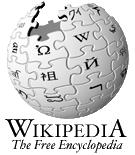 Wisdom of Crowds
Wisdom of CrowdsWikipedia, the free online encyclopedia, has more articles than Britannica and MSN Encarta combined. It relies partly on the "wisdom of crowds": we all, together, probably know more than even the best individual scholar.
Medical Wikipedia
The medical section of Wikipedia is still relatively scarce. I added our tutorial about central line placement and thoracentesis. You can also help to expand its free content. Many searches on Google, Yahoo or MSN lead to Wikipedia, and it is in our power to provide reliable information. All Google searches now feature a word definition supplied by Answers.com which uses the free Wikipedia text.
Peter Frishauf, the founder of Medscape says that "a variant of Wikipedia for medicine is the future -- and it's good."
Can You Trust the Wikipedia Content?
Anybody can create an article, and then anybody can edit it. The final product is usually good enough but you have to use your judgment when reading the encyclopedia. And if you think that Wikipedia's content cannot be trusted, think again - even NEJM lists a reference to it.
How to Contribute?
Adding information to the encyclopedia is not as easy as blogging but I am sure that most of us can do it. Millions already did.

Wikipedia traffic is passing the New York Times (via micropersuasion.com), image source: Alexa
The Counterpoint
"Madness of the Crowds: Take a majority vote from people who don't know the answer, and you're not going to get the right answer. Summing collective ignorance isn't going to create wisdom."
Greg Linden, the founder of Findory
References:
The Wisdom of Crowds - Wikipedia
Wikipedia: Size comparisons
Wikipedia: How to edit a page
Jimmy Wales: A public talk on Wikipedia at ibiblio.com - download video of the lecture
Trackback: Wikipedia: Medical Folks Should Use and Contribute - SoundPractice.net
Who Cares About Medical Blogs? The Video Answer of a Medical Media Company
Wikipedia Lookup Bookmarklet
Ten Wikipedia Hacks - Micro Persuasion
Digg stats after Jason Calacanis offer. Googling Google, ZDNet.
The only way to preserve the wisdom of the crowd is to protect the independence of the individual. WSJ, 2011.